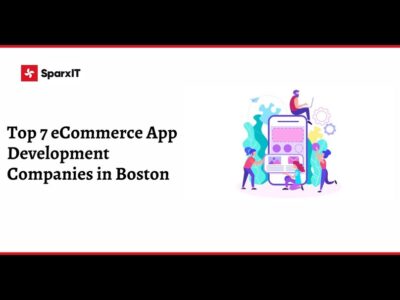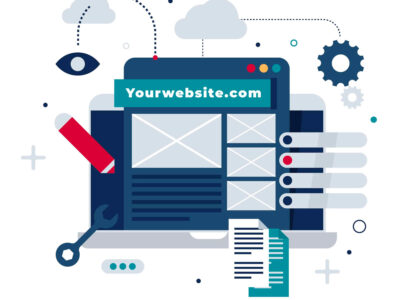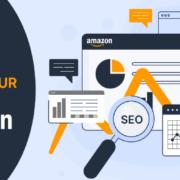Ever dreamed of opening an e-commerce store but struggled to identify the first development steps? Choosing the Best Shopify Consultants lays crucial groundwork for online retail success. Thoroughly vetting developers for capabilities aligned with your brand transforms digital desires into profit-driving storefront realities.
Your Shopify store is the digital face of your brand, it needs to visually engage customers, display products appealingly, and operate seamlessly. That’s no small feat. The developer you choose to build your robust, function-driven store should have strong reviews showcasing satisfied clients. Evaluate their portfolio to confirm they can deliver aesthetically pleasing sites. Optimal Shopify developers efficiently communicate to understand your business needs, then utilize their Shopify knowledge to strategically exceed them. With an increasing number of agencies offering e-commerce services, take time to research and hire Shopify developers thoroughly before collaborating. The developer-client relationship requires mutual understanding and vision to craft a high-converting store that uniquely represents your brand.
5 Tips to Find the Best Shopify Developers
Finding the right Shopify developer is crucial for ensuring your ecommerce store’s success. With thousands of Best Shopify Consultants and agencies to choose from, narrowing down the best fit can be overwhelming. To make the process easier, here are 5 essential tips for finding and evaluating seasoned Shopify developers that are skilled at delivering top-notch stores. In this section we’ll cover how to assess technical expertise, design skills, development processes, reviews and portfolios, and cost considerations.
1. Look at Their Portfolio and Past Work
A picture is worth a thousand words, this holds when evaluating a Shopify developer’s portfolio. Carefully examine 3-5 recent site examples, spanning different industries. Analyze layouts, designs, functionality, and mobile responsiveness. Do the sites strongly align with each brand identity? How do product images and descriptions entice you?
Equally important is understanding a developer’s track record with past clients. Scour online reviews and testimonials for evidence of strong communication, timely project execution, post-launch support, and other favorable traits. Look beyond the volume of reviews and inspect the actual content. Glowing remarks on a developer’s technical prowess and customer service are ideal finds.
Essentially, the portfolio and client feedback should instill confidence that this partner can deftly handle your project needs and expectations. If anything raises uncertainty, keep searching for your perfect match. Trust is vital for this ongoing relationship.
2. Read Reviews and Testimonials
Online reviews offer transparent glimpses into others’ experiences with a Shopify developer. Reading multiple reviews provides helpful context, no agency is perfect. Sift through the commentary seeking evidence that projects were competently executed per the agreed scope, timeline, and budget. Do past clients describe clear communication, strong listening, and reasonable flexibility when inevitable hurdles occur? Were support issues post-launch efficiently resolved? The optimal reviews will showcase technical competence paired with admirable customer service.
Testimonials take reviews a step further, offering video or written praise in the client’s voice. Search for testimonials on the developer’s website and LinkedIn page. Authentic, thoughtful remarks on enjoyable collaboration, successful execution, and fruitful long-term partnerships are all excellent signs. Client retention over multiple years illustrates the capability to adapt sites as brands grow. If testimonials portray disappointment or unresolved conflicts, proceed cautiously. Your goal is to identify developers invested in client relationships beyond single projects.
Also Read: Top 8 Techniques for B2B List Building [Updated for 2024]
3. Evaluate Their Skills and Expertise
Vetting a developer’s capabilities in Shopify and e-commerce is paramount. You want experts who know how to strategically transform your retail vision into a high-converting digital storefront.
- Shopify platform expertise – Confirm they have significant experience building Shopify stores, maintaining backend infrastructure, and optimizing speed/performance. Ideal partners smoothly handle complex platform intricacies.
- Design skills – Evaluate visual design talent through their portfolio and client testimonials. Do they consistently deliver aesthetically elevated stores aligned to brand identities?
- E-commerce strategy understanding – Ask about their e-commerce strategy experience with SEO, social media integration, email marketing, and advanced tactics like personalized onsite search.
- Industry knowledge – Some developers specialize in certain industries like fashion, accessories, or consumer packaged goods. Identify partners with relevant category experience.
- Training services – The best developers educate clients to maximize their Shopify tool proficiency. They also provide ongoing maintenance/support.
4. Check Their Communication Style
Communication breakdowns can swiftly derail e-commerce projects, setting timelines and budgets back while fraying nerves. Confirm upfront that a Shopify developer prioritizes regular client communication via your preferred channels, email, phone, and video chat. Ideal partners provide timeline estimates for milestone updates during the build and allocate an account manager for direct contact. You want to feel heard, avoid radio silence spans, and receive thoughtful responses to questions.
Beyond project updates, evaluate their communication style through initial sales conversations and online client testimonials. Do they actively listen, asking thoughtful questions about your business needs while resisting assumptions? Are discussions productive two-way dialogues or one-sided spiels? Testimonials should indicate respectful communication resonating beyond transactional project relationships into ongoing support partnerships. Clear communication remains vital for launching sites on time and budget, and then maintaining those cornerstones long-term.
5. Compare the Pricing of Different Developers
Shopify developer pricing varies based on project scope, specialties, and experience levels. Avoid automatically choosing the lowest bidder – assess holistic value beyond upfront costs. A higher initial price may reap dividends for years via optimized performance, striking visuals, and helpful support.
Thoroughly compare tiers of customization, featured offerings, and post-launch support across multiple developer packages. Weigh these factors against rates to identify optimal value. Ask for 2-3 recent client references to inquire if project deliverables justified costs.
- Examine base site build fees plus additional costs for advanced features like customized checkout processes or warehouse integration APIs.
- Some developers charge monthly for hosting/maintenance while others utilize Shopify Partners for built-in hosting.
- Consider balancing upfront investments against long-term gains if spectacular design talent or e-commerce strategy support boosts conversions.
Pricing should align with your budget limitations and projected sales volumes. Drive negotiations through outstanding value communication, not just the lowest bids.
Conclusion
Selecting the right Shopify developer sets the foundation for crafting an e-commerce store that uniquely represents your brand while driving conversions. Thoroughly evaluate contenders by examining portfolios, skills, reviews, and communication approaches. Validate their expertise across critical facets like powerful yet user-friendly design, comprehensive Shopify platform capabilities, and conversion-lifting strategies. Take time upfront during your search to understand pricing models and expected deliverables. The developer relationship extends far beyond the launch date through ongoing optimization and expansion as your business grows. Invest in a stellar Shopify partner aligned with your vision and equipped to meet evolving retail needs for years ahead.














Comments